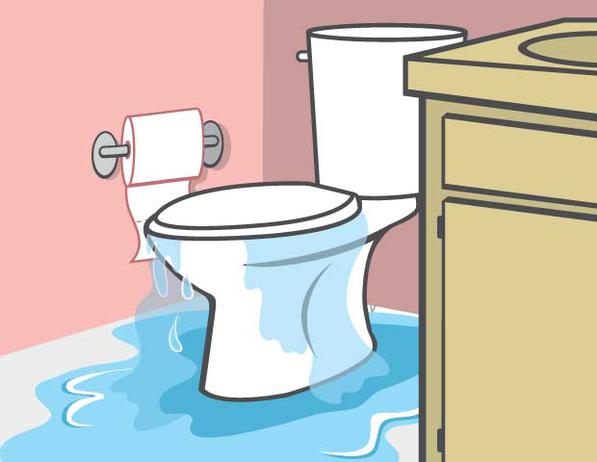If you have an elderly family member or close friend who lives independently, here are some important cold weather safety tips to prepare them and their home for the upcoming winter. Seniors are particularly vulnerable during frigid weather and are at a higher risk for accidents, injuries and other emergencies, especially if they still drive. Other threats include furnace failures, power outages, isolation, hypothermia and dehydration. Keep them safe and comfortable in the months ahead by addressing these to-do’s before winter’s snow and ice arrive.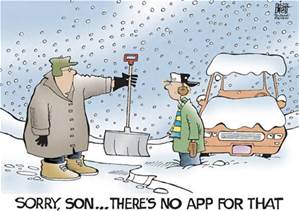
First and Foremost, Keep Them Warm!
1. Check the furnace
Cold weather safety begins with preventative HVAC maintenance to ensure trouble-free operation and peak performance of the furnace. To avoid problems with your senior’s heating system when winter is in full swing, schedule a furnace inspection with an HVAC professional now. Have the contractor clean or replace filters and make any necessary repairs.
2. Clean the chimney and flue
If your senior’s home has a fireplace or wood/pellet stove, make sure the chimney and flue are clean of creosote and soot to prevent chimney fires and improve efficiency. If you don’t want to spend money on a professional chimney sweep, use a do-it-yourself chimney cleaning system that makes it easy to clean the chimney from inside the home without getting up on a ladder.
3. Stock up on fuel
Fill the oil, propane or kerosene tanks and arrange for a delivery of seasoned firewood or wood pellets.
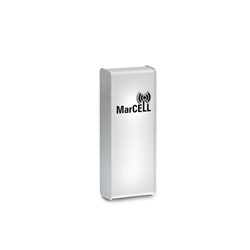 PRODUCT RECOMMENDATION: Install a freeze alarm that sends alerts if your senior’s heating system fails.
PRODUCT RECOMMENDATION: Install a freeze alarm that sends alerts if your senior’s heating system fails.
To get an immediate alert if your senior’s furnace fails and the indoor temperature is plummeting, equip their home with a freeze alarm. There are many types of affordable call-out freeze alarms on the market, including the very affordable phone-based Homesitter freeze alarm that automatically calls up to three emergency phone numbers and sounds a loud alarm if there is a drop in temperature (below 45°F/7°C). If their home does not have landline service, a cellular freeze alarm like the MarCELL Cellular Connected Monitoring System is a good solution.
Get Them Ready for Power Outages
1. Provide an alternative source of heat
Seniors should have a safe (non-electric) way to stay warm during power outages, such as a wood stove, kerosene heater or efficient wood-burning fireplace. But since burning wood or kerosene can produce deadly CO gases, make sure the area is properly ventilated and install a carbon monoxide detector and a smoke detector.
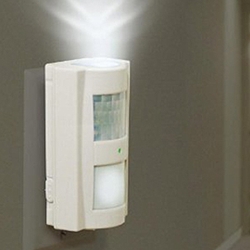 2. Provide non-electric lighting
2. Provide non-electric lighting
Make sure your senior has adequate lighting sources during blackouts, including battery-powered flashlights, lanterns and extra batteries. As a backup, get your senior a hand-crank flashlight that works without batteries. For instant illumination in rooms and hallways, plug in automatic rechargeable nightlights that provide safety lighting if the power goes out. Outside, install a couple of motion-sensitive spotlights. Check out the latest in solar-powered security lights. They’re super easy to install because they’re wireless and can be positioned just about anywhere there’s adequate sunshine to recharge the batteries.
3. Keep their cell phone charged
Staying in touch with the outside world during a power outage is important for home-alone seniors, but keeping mobile devices charged is a problem when there’s no electricity. Get your senior an emergency cell phone charger like the PowerNow Grande so they can power up their cell phone or tablet during prolonged power outages.
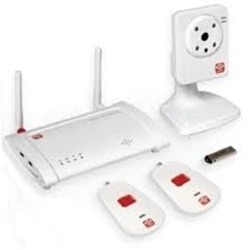 PRODUCT RECOMMENDATION: A personal emergency response system so your senior has a reliable way to call for help.
PRODUCT RECOMMENDATION: A personal emergency response system so your senior has a reliable way to call for help.
A power outage can make it difficult or impossible for seniors to get help, especially if there’s a medical emergency. For cold weather safety and anytime safety, set them up with a personal emergency alert system so they can contact family, friends or emergency services if they need assistance. The smartphone-controlled Oplink Connected Care system is a good choice. It includes 2 wearable panic buttons that send instant alerts if immediate help is needed. It also lets family and caregivers monitor live video of their senior on a smartphone so they can see firsthand if their loved one needs help.
Stock up on Food, Water and Meds
1. Buy extra food and bottled water
Stock the cupboard with a weeks supply of non-perishable food and a couple of gallons of drinking water. Get your senior a hand-operated can opener to use during power outages.
2. Fill prescriptions of critical medications
Don’t let important meds run low in the winter. Switch your seniors prescriptions to a local pharmacy that makes home deliveries or sign up with a mail order pharmacy so no one has to venture out in bad weather to pick up medications. Set up a Reminder Rosie voice controlled clock to remind your senior when it’s time to take his meds. Rosie has a backup battery so she’ll keep working during power outages and since she talks, she’s actually good company!
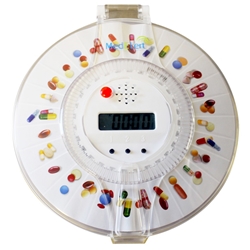 PRODUCT RECOMMENDATION: Fill a multi-day automated pill dispenser to make pill taking easier.
PRODUCT RECOMMENDATION: Fill a multi-day automated pill dispenser to make pill taking easier.
Many seniors take multiple prescription medications as well as vitamins at various times of the days, which can be difficult for them to manage and risky if they get it wrong. With an automated pill dispenser and medication reminder like the Med-E-Lert Automatic 6-Alarm Pill Dispenser, you can ensure that they taking the right meds at the right time. When it’s time to take a pill, medication reminder alarm sounds a tone or blinks. Med-E-Lert also features a tamper-proof locking key system that helps prevent over-medication.
Keep them Healthy Even when Housebound
 1. Prevent cabin fever by having family, neighbors or a caregiver call or stop by
1. Prevent cabin fever by having family, neighbors or a caregiver call or stop by
Winter can be a time of boredom, isolation and seasonal depression for seniors, especially when housebound. Encourage family and friends to stop over or stay in touch by phone. Make sure your loved one has a good telephone system so they can make calls easily and enjoy conversations. A phone such as the Serene Innovations CL-60 Amplified Cordless Phone with easy-to-read buttons, amplified volume and talking caller ID is a favorite for older folks with hearing loss, low vision or limited mobility.
2. Encourage indoor exercise
Seniors who are mobile should move their bodies by walking in place or doing laps around the house. Wearing a pedometer or heart rate monitor can encourage movement while helping them exercise within safe limits.
3. Prevent dehydration
Although the causes are varied, winter dehydration is a real risk for the elderly. Remind your senior to eat well-balanced meals that include lots of vegetables and fruits and drink plenty of water. Staying hydrated is another very important cold weather safety tip.
 PRODUCT RECOMMENDATION: Make it easy for your senior to regulate the room temperature by installing a remote controlled thermostat.
PRODUCT RECOMMENDATION: Make it easy for your senior to regulate the room temperature by installing a remote controlled thermostat.
Keep your senior happy and comfortable and help prevent hypothermia by installing a remote controlled wireless thermostat in their home so they’ll be able to adjust the heat without getting up from their seat. Older adults are especially vulnerable to hypothermia, which can be deadly if not treated quickly. Lower body heat, inactivity, illnesses such as diabetes and some medications also put older adults at risk of hypothermia. To avoid danger, seniors should stay inside during extreme cold and windy weather; keep their home heated to between 68 to 70F; and dress in layers including long underwear, socks, slippers and sweaters.
More Cold Weather Safety Suggestions
If your senior is still driving around town, be sure that their car is winterized and equipped with an ice scraper, travel fluid, hat and gloves, cell phone and a travel blanket in case they become stuck or stranded. Remind them to pay attention to travel warnings or advisories during winter weather. A weather alert radio is a great way to stay on top of the latest weather forecast.
Arrange for someone to shovel and salt the walkways, entrances and driveway to your senior’s home. Encourage seniors to stay indoors until everything is clear. Volunteer or ask a neighbor to bring them their mail and newspaper and offer to drive them to the store or appointments.


